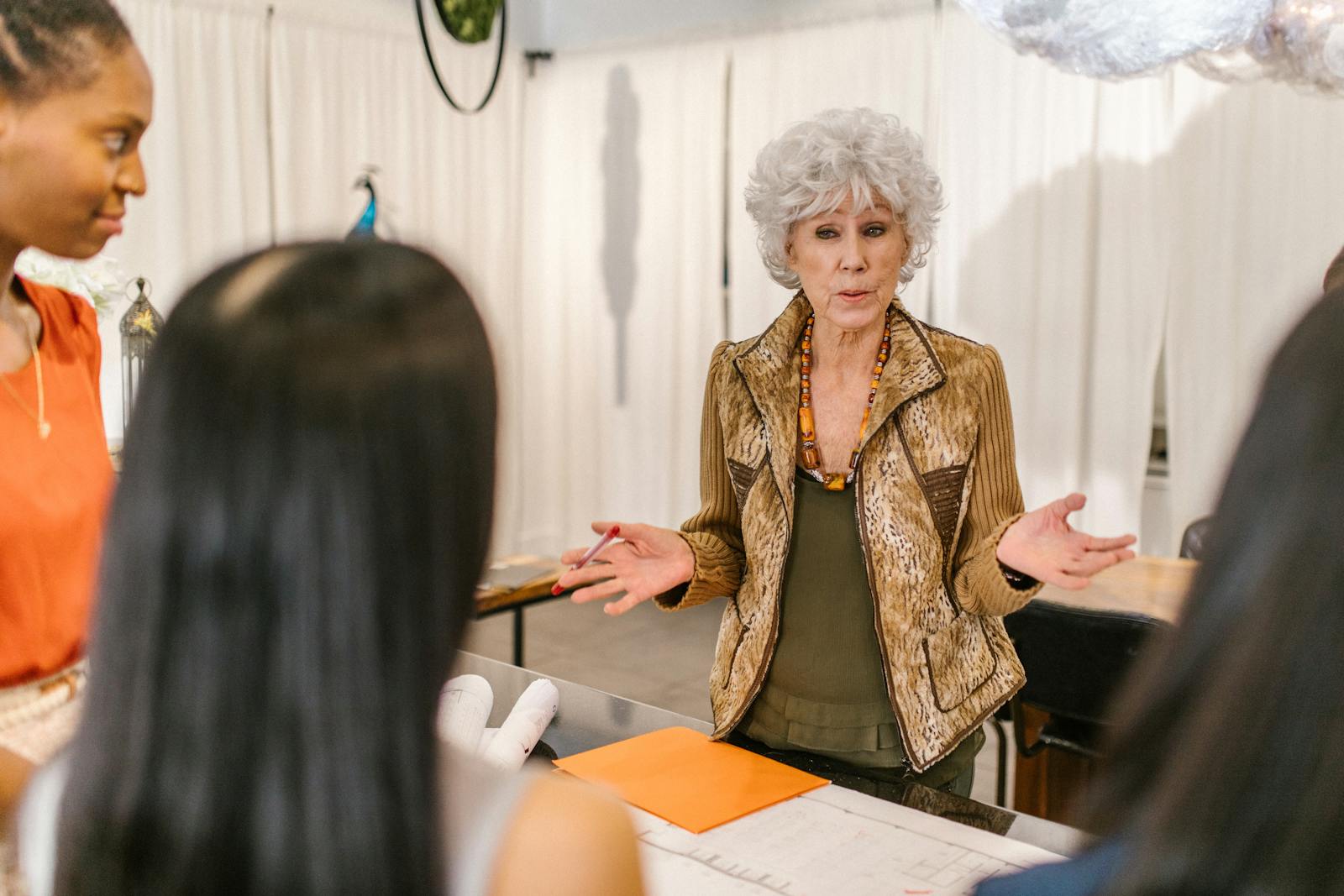As people age, they accumulate a wealth of knowledge, skills, and life experiences that can be incredibly valuable to younger generations. Older adults often seek ways to give back and stay engaged by sharing their wisdom through mentoring roles. Mentoring not only benefits the mentees, who gain valuable insights and guidance, but also offers older adults a sense of purpose, fulfillment, and connection.
Mentoring opportunities can take many forms, from formal mentoring programs in workplaces and schools to informal relationships within the community. Below are some effective ways for older adults to contribute their knowledge and experience in mentoring roles.
1. Join Workplace Mentoring Programs
Older adults with extensive career experience are well-positioned to mentor younger employees in their field. Many workplaces offer formal mentoring programs designed to foster professional growth and development. By participating in these programs, older adults can share their expertise, help mentees navigate career challenges, and provide insights into leadership, problem-solving, and industry-specific skills. Workplace mentoring can also include offering advice on work-life balance, career transitions, and how to thrive in a professional environment.
Why It’s Effective: Mentoring in the workplace allows older adults to share their industry knowledge, leadership skills, and career wisdom with younger employees, helping them advance professionally. It also fosters intergenerational collaboration, benefiting both mentors and mentees.
Example:
An older adult with a background in management could mentor younger employees on leadership development, project management, and how to navigate complex organizational structures.
2. Volunteer as a Mentor in Educational Institutions
Educational institutions, from elementary schools to universities, are always looking for experienced individuals to mentor students. Older adults can volunteer to tutor, mentor, or coach students, offering academic support as well as guidance on personal development, goal setting, and career planning. This can involve helping students with specific subjects, providing college or career advice, or offering life skills coaching.
Why It’s Effective: Mentoring in schools and universities allows older adults to shape the next generation, helping students develop academically and personally. It also offers the opportunity to inspire and motivate young people by sharing personal stories of success, failure, and resilience.
Example:
An older adult with a background in engineering might mentor high school students interested in STEM fields, offering guidance on academic paths, internships, and career opportunities in science and technology.
3. Participate in Community-Based Mentorship Programs
Many communities offer mentorship programs through local organizations, nonprofits, or faith-based groups. These programs often focus on supporting youth, individuals facing challenges, or those looking to improve their skills in specific areas. Community-based mentoring can be incredibly rewarding for older adults who want to make a difference in the lives of others, whether it’s guiding a young person through difficult decisions, helping someone overcome obstacles, or simply being a positive role model.
Why It’s Effective: Community-based mentorship programs allow older adults to directly impact the lives of individuals in their local area. These programs often provide opportunities to build long-term, meaningful relationships with mentees, which can be beneficial for both parties.
Example:
An older adult could volunteer with a community center mentoring program to guide at-risk youth, offering support, advice, and encouragement on topics such as education, employment, and life goals.
4. Mentor Entrepreneurs and Small Business Owners
Older adults with experience in entrepreneurship or business management can offer invaluable insights to aspiring entrepreneurs and small business owners. Many individuals looking to start or grow a business seek mentors who have navigated the challenges of entrepreneurship, such as securing funding, managing operations, marketing, and scaling a business. By providing guidance and sharing lessons learned, older adults can help mentees make informed decisions, avoid common pitfalls, and achieve long-term success.
Why It’s Effective: Business mentoring allows older adults to share their expertise in a focused area, helping younger entrepreneurs and business owners develop their skills and grow their ventures. This type of mentoring can have a direct impact on the success of local businesses and the economy.
Example:
An older adult who successfully ran a small business might mentor a younger entrepreneur, offering advice on managing finances, developing a marketing strategy, and navigating the challenges of business ownership.
5. Serve as a Mentor in Professional or Industry Associations
Many professional associations and industry groups offer mentorship programs that connect seasoned professionals with newcomers in the field. Older adults can contribute their knowledge and experience by joining these programs and mentoring individuals who are just beginning their careers. Mentors in professional associations can offer guidance on career development, networking, industry trends, and continuing education. This type of mentoring also helps keep older adults connected to their field and fosters a sense of ongoing professional engagement.
Why It’s Effective: Professional and industry-specific mentoring allows older adults to pass on specialized knowledge, help mentees build networks, and stay connected to the latest developments in their field. It also strengthens the industry by developing well-rounded professionals.
Example:
An older adult who is a retired accountant could join an accounting association’s mentorship program, helping young professionals navigate certifications, career pathways, and continuing education.
6. Engage in Peer Mentoring
Peer mentoring is an excellent way for older adults to support each other. By sharing experiences related to aging, retirement, health, and life transitions, older adults can offer practical advice and emotional support to their peers. Peer mentoring often focuses on issues that are particularly relevant to older adults, such as navigating healthcare, staying active in retirement, or dealing with grief and loss.
Why It’s Effective: Peer mentoring allows older adults to connect with others who are going through similar life experiences. It promotes mutual support and helps individuals feel less isolated as they navigate the unique challenges of aging.
Example:
An older adult who has successfully transitioned into retirement might mentor others on how to find new hobbies, manage finances, and stay engaged in social and community activities during retirement.
7. Become a Virtual Mentor
Technology has made it easier than ever for older adults to become mentors, even if they cannot meet face-to-face with their mentees. Virtual mentoring allows individuals to connect online or by phone, offering flexibility and accessibility to both the mentor and the mentee. This option is ideal for older adults who may have mobility limitations or who wish to mentor people in different geographic locations. Many organizations offer virtual mentoring platforms where mentors can provide advice, coaching, and support through email, video calls, or online forums.
Why It’s Effective: Virtual mentoring eliminates geographical barriers and allows older adults to mentor individuals from all over the world. It also provides flexibility in terms of scheduling and reduces the need for in-person meetings, making it accessible to more people.
Example:
An older adult with a background in marketing might become a virtual mentor through a professional platform, offering guidance and insights to young marketers looking to advance their careers.
8. Mentor Through Hobbies or Special Interests
Mentorship doesn’t always have to be career-focused—older adults can also mentor younger individuals through shared hobbies, interests, or talents. Whether it’s teaching someone to play an instrument, mentor in the arts, coach in sports, or guide someone in gardening, older adults can pass on skills and knowledge in areas they are passionate about. This type of mentoring not only fosters a sense of accomplishment but also helps build meaningful connections between generations.
Why It’s Effective: Mentoring through hobbies or special interests allows older adults to share their passions while nurturing the growth of others. It also creates opportunities for intergenerational bonding and preserves valuable cultural or creative traditions.
Example:
An older adult who has played the guitar for years might mentor a young person who wants to learn to play, providing lessons and sharing their love for music.
9. Volunteer as a Mentor Through Faith-Based Organizations
Many older adults find fulfillment by mentoring through faith-based organizations, such as churches, synagogues, or mosques. Faith-based mentoring often focuses on providing spiritual guidance, life advice, and support for individuals facing challenges. Older adults can mentor younger members of the congregation, help with community service projects, or provide counsel to those seeking spiritual growth.
Why It’s Effective: Faith-based mentoring allows older adults to share their life experiences and spiritual insights with others. It fosters a strong sense of community and encourages values such as compassion, generosity, and service.
Example:
An older adult might mentor a younger member of their faith community by offering support through life challenges, sharing religious teachings, or participating in volunteer activities together.
10. Mentor Through Nonprofit Organizations and Volunteer Programs
Many nonprofit organizations and volunteer programs seek experienced individuals to mentor others, particularly in areas such as education, career development, or life skills. Older adults can offer valuable insights to individuals who are seeking to improve their lives, including underserved youth, people re-entering the workforce, or those looking to learn new skills. By partnering with nonprofits, older adults can mentor individuals who might not otherwise have access to guidance and support, making a positive impact on their communities.
Why It’s Effective: Nonprofit organizations often serve communities in need, and older adults can play a key role in providing mentorship to help individuals gain the skills, knowledge, and confidence to succeed. It’s a fulfilling way to give back and create lasting change.
Example:
An older adult with experience in financial management could mentor individuals in a nonprofit program that teaches financial literacy, helping mentees learn budgeting, saving, and investment strategies to improve their financial futures.
Conclusion
Older adults have a wealth of experience and knowledge to share, making them ideal mentors for younger generations. Whether mentoring in the workplace, schools, communities, or through hobbies and interests, older adults can make a meaningful impact on the lives of their mentees. By contributing their wisdom, skills, and guidance, they not only help others grow but also find fulfillment and purpose in their own lives. Through formal mentoring programs or informal connections, older adults can continue to influence the world around them and leave a lasting legacy.




